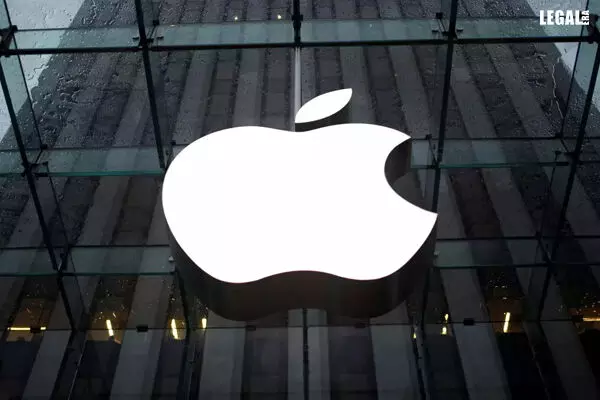- Home
- News
- Articles+
- Aerospace
- Artificial Intelligence
- Agriculture
- Alternate Dispute Resolution
- Arbitration & Mediation
- Banking and Finance
- Bankruptcy
- Book Review
- Bribery & Corruption
- Commercial Litigation
- Competition Law
- Conference Reports
- Consumer Products
- Contract
- Corporate Governance
- Corporate Law
- Covid-19
- Cryptocurrency
- Cybersecurity
- Data Protection
- Defence
- Digital Economy
- E-commerce
- Employment Law
- Energy and Natural Resources
- Entertainment and Sports Law
- Environmental Law
- Environmental, Social, and Governance
- Foreign Direct Investment
- Food and Beverage
- Gaming
- Health Care
- IBC Diaries
- In Focus
- Inclusion & Diversity
- Insurance Law
- Intellectual Property
- International Law
- IP & Tech Era
- Know the Law
- Labour Laws
- Law & Policy and Regulation
- Litigation
- Litigation Funding
- Manufacturing
- Mergers & Acquisitions
- NFTs
- Privacy
- Private Equity
- Project Finance
- Real Estate
- Risk and Compliance
- Student Corner
- Take On Board
- Tax
- Technology Media and Telecom
- Tributes
- Viewpoint
- Zoom In
- Law Firms
- In-House
- Rankings
- E-Magazine
- Legal Era TV
- Events
- Middle East
- Africa
- News
- Articles
- Aerospace
- Artificial Intelligence
- Agriculture
- Alternate Dispute Resolution
- Arbitration & Mediation
- Banking and Finance
- Bankruptcy
- Book Review
- Bribery & Corruption
- Commercial Litigation
- Competition Law
- Conference Reports
- Consumer Products
- Contract
- Corporate Governance
- Corporate Law
- Covid-19
- Cryptocurrency
- Cybersecurity
- Data Protection
- Defence
- Digital Economy
- E-commerce
- Employment Law
- Energy and Natural Resources
- Entertainment and Sports Law
- Environmental Law
- Environmental, Social, and Governance
- Foreign Direct Investment
- Food and Beverage
- Gaming
- Health Care
- IBC Diaries
- In Focus
- Inclusion & Diversity
- Insurance Law
- Intellectual Property
- International Law
- IP & Tech Era
- Know the Law
- Labour Laws
- Law & Policy and Regulation
- Litigation
- Litigation Funding
- Manufacturing
- Mergers & Acquisitions
- NFTs
- Privacy
- Private Equity
- Project Finance
- Real Estate
- Risk and Compliance
- Student Corner
- Take On Board
- Tax
- Technology Media and Telecom
- Tributes
- Viewpoint
- Zoom In
- Law Firms
- In-House
- Rankings
- E-Magazine
- Legal Era TV
- Events
- Middle East
- Africa
U.S. Supreme Court Refused to Hear Apple-Broadcom Challenge to Caltech Patents

U.S. Supreme Court Refused to Hear Apple-Broadcom Challenge to Caltech Patents
The U.S. Supreme Court has refused to hear a bid by Apple and Broadcom to revive their challenges to Caltech data-transmission patents.
The Supreme Court justices decided not to continue dealing with the appeal filed by Apple and Broadcom over an earlier Court ruling preventing the companies from contesting the California Institute of Technology’s Wi-Fi technology patents.
The U.S. Court of Appeals for the Federal Circuit previously ruled against arguments from the companies to say the patents were invalid, due to a failure to raise them during an earlier hearing at the U.S. Patent and Trademark Office.
The companies had argued that they should have been allowed to raise the patent challenges during a trial in which they were found to have infringed Caltech’s patents.
The case began in 2016, when Caltech sued Apple and Broadcom, alleging that their use of Broadcom Wi-Fi chips in iPhones, iPads, and Apple Watches infringed Caltech’s patents.
The jury ruled in favor of Caltech, awarding the university $837.8 million in damages against Apple and $270.2 million in damages against Broadcom.
However, the U.S. Federal Circuit overturned the jury verdict, opined that the damages awarded was excessive.
The Court also upheld the trial judge’s decision to block Apple and Broadcom from arguing that the patents were invalid because they could have made the arguments in their petitions for USPTO review of the patents.
Apple and Broadcom appealed to the Supreme Court, arguing that the Federal Circuit had misread the law.
The companies contended that the law only blocks arguments that could have been raised during the review itself, not during earlier proceedings at the USPTO.
President Joe Biden’s administration urged the justices in May to reject the case and argued that the Federal Circuit had interpreted the law correctly.
Additionally, Caltech has sued Microsoft Corp, Samsung Electronics Co, Dell Technologies Inc and HP Inc, accusing them of infringing the same patents in separate cases which are pending.



